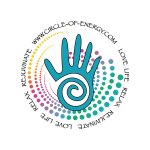Massage Therapy
Why Massage Therapy?
 We all love massage, because it feels great, like resting on a warm sandy beach, under a cool palm tree! The relaxation it brings is an integral part of any healing process or desire for higher levels of wellness. It also stimulates the internal organs, skin & nervous system, relaxes muscle spasms softens scar tissue from surgery or sports injury, soothes tension, and dissolves stress.
We all love massage, because it feels great, like resting on a warm sandy beach, under a cool palm tree! The relaxation it brings is an integral part of any healing process or desire for higher levels of wellness. It also stimulates the internal organs, skin & nervous system, relaxes muscle spasms softens scar tissue from surgery or sports injury, soothes tension, and dissolves stress.
The type of massage you will receive from Cynthia combines many styles and years of practice. Her sense of touch is highly tuned, deep yet light, enjoyable & nourishing. She finds the areas that feel like a ‘good hurt’ because they address your core issues. Much of the bodywork you receive from Cynthia focuses on the fascia. Understanding the importance of fascia may help you to realize the significance it plays in your overall physical wellness. You will also benefit greatly from the highly precise energetic points from Polarity Therapy’s wisdom and acupressure points from Chinese Medicine. Both sets of points can affect your body’s organ systems at a deeper level than general massage, plus so much more.
 Most clients appreciate the pleasure and power that accompany the pure botanical essential oils as they blend with a high-quality base massage oil for the perfect therapeutic or simple satisfying aromatherapy experience as you relax into your massage.
Most clients appreciate the pleasure and power that accompany the pure botanical essential oils as they blend with a high-quality base massage oil for the perfect therapeutic or simple satisfying aromatherapy experience as you relax into your massage.
What about Fascia?
Fascia is a plastic-like tissue that encases muscles and individual muscle bundles and provides broad attachment sites for them. Fascia comes together at the end of the muscle and becomes the tendon, which attaches the muscle to the bone. There is fluid between individual fascial fibers that permits freedom of movement of adjacent muscle groups.
The fascial system of our body can be seen as a multi-layered body stocking, with fascial sheaths wrapping the muscles and weaving in layers throughout the body. Because of this, stress in any area of the body affects every other part of the body.
In its optimal condition, fascia is a loose, moist tissue. When there is continual fluid movement and balance in the body, the fascial body stocking stays pliable and mobile, facilitating the movement between different parts of the body. However, under continual stress and lack of movement, fascia becomes rigid and loses its fluidity. Layers of fascia begin to glue to one another, causing the “knots” you may have experienced in your neck or back. The sheaths of fascia stick in a systematic way, based on our habitual patterns of movement, or more correctly, lack of movement. Although people most often associate tension and stiffness with their muscles, it is actually the fascia that accumulates much of this stress.
Rejuvenating Yoga, the style of yoga I teach on my yoga DVD; at Park Cities Yoga; in private sessions; or towards the end of a massage/bodywork session keeps your fascia stress-free and fluid, and keeps you easily connected from head to toe.

